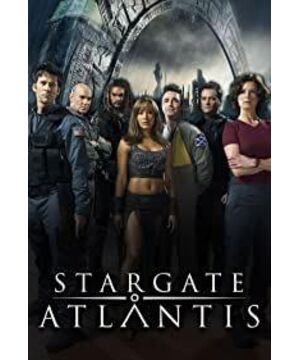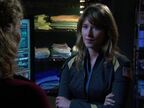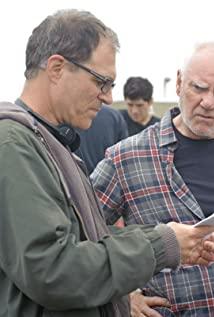"The Biographies of Lian Po Lin Xiangru", is the one in "Historical Records" that I don't like. Why don't you like it? Until one day preparing for class, while chatting with the opposite colleague, I said, Tai Shi Gong is very personal heroism. You see, for the Six Kingdoms and Qin, it is the grand strategy of prosperity and decline. He wrote it as if it was a game played by Su Qin and Zhang Yi. Qin and the Six Kingdoms are nothing but a game. Their little chess pieces are nothing more. "Mengchang", "Xinling", "Assassin", and "Ranger" are particularly personal heroism, not to mention. His style often leads us to believe that history is full of contingency. A small person and a small incident are enough to change the course of the entire history, so that when reading the story of Jing Ke Xiang Yu Han Xin... In the last hit, Qin’s tyranny will no longer appear; Hongmen Banquet Xiang Yu beheads Liu Bang, and the world will change his surname from now on; Han Xin muster up the courage to “remember” and avoid the death of a rabbit... But all sorts of contingency seem to be It points to the inevitable, that is, the unknowable fate, because so many possibilities have resulted in a result that does not seem to be the most reasonable-even the most unreasonable. It's no wonder that he expressed his suspicion about "the way of heaven has no relatives, and he often has good people" in "The Biography of Uncle Boyi".
Of course there are things in the history books that trigger the association of "if...maybe...", but "Historical Records" is particularly powerful. Probably because he tried his best and was good at restoring details, the readers would have a stronger feeling of "visiting history". But the stronger the feeling, the greater the suspicious element. Later generations of scholars, especially those who are also politicians, questioned the "heroes" more or less because they thought that history will not be so capricious and politics will not be so simple. Wang Anshi disagrees with Meng Changjun's "raising scholars"-there are so many robbers and dogs, so scholars are not there. Some people also questioned that Lin Xiangru, after asking the king of Qin to fast and take a bath, was the first to send He's Bi back to the country.
An episode of "Stargate Atlantis". Once another team arrived on a new planet through the Stargate. The planet is full of satellites, but the people’s development level stays in the Middle Ages. Obviously, satellites are not their masterpieces. What is even more bizarre is the flying city flags. , Is clearly the head of the technology genius Rodney. This scene was sent back to the control room, Rodney and John looked weird. Under Weir's questioning, they confessed that two years ago, in the process of surveying the city, they found an ancient "game room", and they could select a "country" in the database to cultivate their civilization.
Rodney and John used a computer to play face-to-face. Their "country" is only separated by water. Of course, Rodney gave full play to his expertise and taught his "people" a lot of weird skills within the rules of the game, and John Vigorously develop the army. The two "countries" are under their command.
So Weir asked them to form a team to investigate. They were surprised to find that this dreamlike "country" was exactly the same as Rodney's setting in the game. His portraits were hung everywhere there, and the people respected him as a "prophet." Only then did they understand that the game room is not a game room, but a laboratory for the development of ancient society. They spread life on suitable planets, collect information through dense satellites and send it back to Atlantis, and then send various instructions from Atlantis, just like a real-time game. There are more than one or two such planets, and the humans living on them only know that the "prophet" gives them life and instructs them what kind of life they should live. More than 10,000 years ago, the order was interrupted due to the war between the ancients and the ghosts. Some of those civilizations have stagnated since then, some have developed on their own, and more have been destroyed or dying. Until two years ago, the "prophet" once again came to these two "countries"...
Ha, what do you think of here? "The world is not benevolent, and everything is a dog." What if "God" and "Prophet" really existed and our lives were just a game manipulated by "them"? Everything we do so ambitions is not out of free will; the feats we thought can change history only fall into the procedural package.
In Milan Kundera’s novel "Immortal", Agnes asked her father, do you believe in God? Her father said, no, I believe in the creator's computer. She asked her father again if she prayed. His father said, "It's like praying to Edison when a light bulb is burned."
This description can be used as a footnote to the story. After God created everything, he turned and left, abandoning mankind in the vast void, leaving only the computer program running alone. Programs are full of bugs, and the world is so imperfect, but humans have no way to break free and have nowhere to ask. When the poor human beings are on the brink of desperation and cry out in desperation, the phrase "my god, why abandon me?" is always a bone in his throat.
In the second half of the story, it is logical that the spirits of Rodney and John caused catastrophic consequences. The people of the two countries painfully discovered the destruction of their faith and the truth of life, but they were unwilling to stop their hostility. As the army is strong, we are ready to fight for the death of a fish and break the net. In the end, Rodney sent the scene of a virtual war to the command sand table of both sides, finally making them understand that no one can afford the devastating consequences of the war. Weir forbids everyone to play "God's Game" again. People on these planets can use Nietzsche's famous saying-"God is dead". From then on, they must learn to control their lives.
There is a bridge in the play. Weir tried to bring the leaders of the two countries to the negotiating table, but they kept accusing each other. One said that we used gifts to express our friendship, but what did we get in return? Another retorted: "What did you send? Boxes of oranges! (Filled with righteous indignation) Oranges! Do you know how much an insult to our people is this?" Weir laughed again and again. She naturally guessed that Rodney is allergic to oranges. So he told his people as a "prophet" that oranges are poisonous. Sometimes, the disputes between civilization and civilization, religion and religion, some sacred and inviolable mysteries, but so.
View more about Stargate: Atlantis reviews










